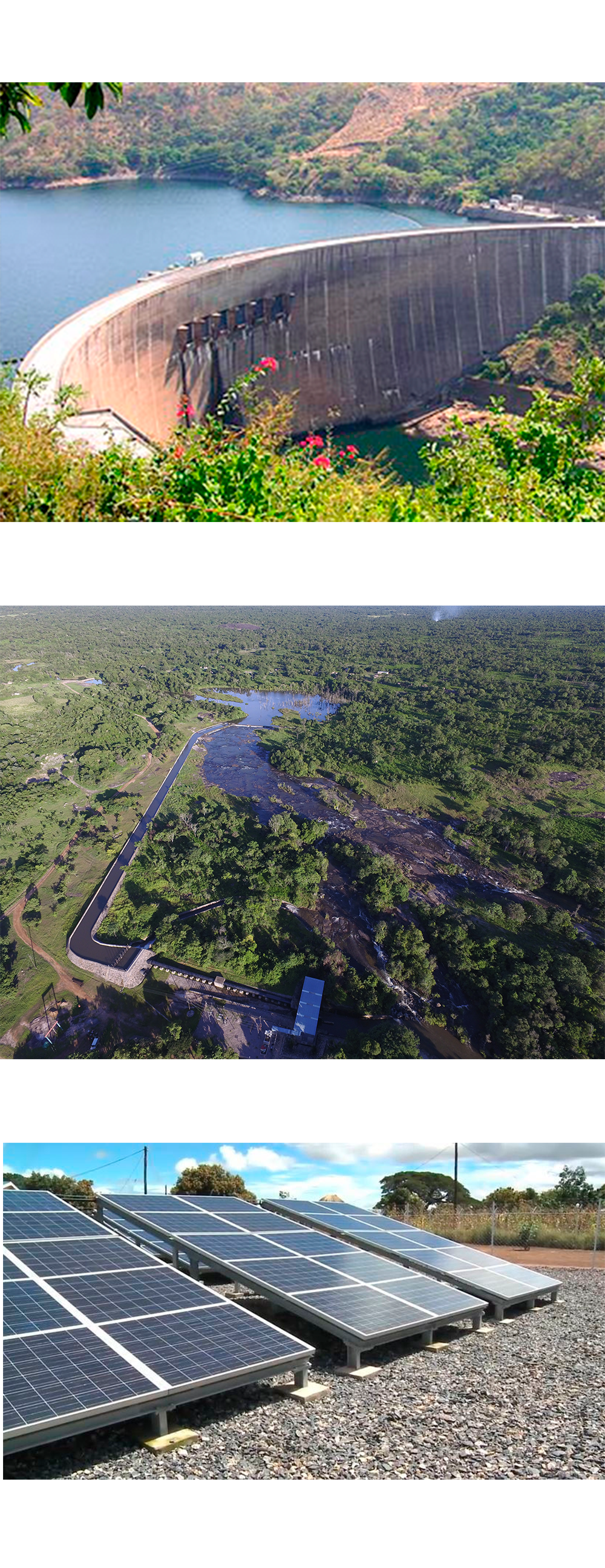
Our unique approach to training and capacity building
The restricted tender procedure for the EuropeAid/138330/IH/SER/ZM - “Capacity Building for Renewable Energy and Energy Efficiency: Feasibility Studies and Demonstration Projects” was launched in the spring of 2017. This project is to date the largest EU TA arising from the preparatory and formulation actions for the EU-funded energy programs. NTU submitted a solid application for the tender and was selected among 30 international consortiums.
The purpose of the Capacity Building for Renewable Energy and Energy Efficiency: Feasibility Studies and Demonstration Project is to support the Rural Electrification Authority to develop and demonstrate mini hydro off-grid schemes and other renewable energy projects that may include solar PV, biomass, wind or hybrid systems. With budget of 5 MEUR (with the option to extend the contract to 12,5 MEUR), a duration of 5 years and over 36 000 consultancy hours, this TA project will support Zambia in achieving much needed access to clean, reliable and affordable energy and promote renewable energy production and energy efficiency across the country. For NTU, this is genuinely the ideal project as we are able to apply our sustainable and renewable energy competencies within the Zambian energy sector. Our large success with these projects is due to our very unique approach to development projects, which we have developed over the past 10 years. Novelty is in the core of the NTU method statements, and we trust that bridging between our innovative approach to delivery of consultancy, integrating R&D into our projects and taking into account the local context, challenges and conditions, we are able to develop top quality proposals ensuring a very high success rate in our bid.
Zambia’s urgent need for renewable energy
In the last years, the Zambian economy has been growing fast, and the demand for energy has been rising due to increased economic activities mainly in agriculture, manufacturing and mining sectors.
Zambia’s population currently stands at 15.5 million people (2016) and is growing at a rate of ca 3%. The majority of the population live in rural areas, where access to modern forms of energy remains a challenge, and currently only 3 % of the people in these areas have access to energy. Urban areas have better access, yet still only 48% of the people in urban areas have energy. Overall, only about 25% of the population currently have access to energy, and wood fuels account for over 70% of the total national energy consumption which eventually leads to deforestation. Moreover, a challenging factor for the future power sector development is the large size of the country (743,400 km2) combined with the very low population density in rural areas yielding a very high connection cost per capita. Because of this, achieving a universal access to electricity will require a mix of main grid extension, mini-grids and isolated off-grid solutions and that investment will need to come to a large extent from private sector financing, particularly in areas where the productive use of electricity can be prioritized.
The Zambian electricity market is heavily dependent on large amortized hydropower plants. This lack of diversity in electricity sources, coupled with a deficit in the total installed generation capacity has made the country energy situation vulnerable in the past few years. In the current energy crisis context, the government has launched several initiatives to develop renewable energy production and enhance energy efficiency.
The project in detail
The European Union has identified that currently there are no examples of sustainable government operated mini-hydro grids in Zambia. After consulting with the Government of Zambia a consensus was reached on how critical it is for the Rural Electrification Authority (REA) to demonstrate that such a scheme can be viable. This project will therefore support the Rural Electrification Authority to develop and demonstrate mini hydro off-grid schemes and other renewable energy projects that may include solar PV, biomass, wind or hybrid systems. For this above, the NTU team will assist the Rural Electrification Authority in building its capacity, creating new avenues for public-private development of the off-grid sector, and strengthening its position to finding a sustainable financial model for its activities.
The NTU Team Leader will be based in REA to work with its personnel on a day-to-day basis and provide know-how transfer while developing feasibility studies and management guidelines for mini-grids. It is intended that the project will undertake pre-feasibility studies for 3-5 of the already identified prospective sites for mini hydro off-grid schemes (from 0,5MW to 3MW) to identify the most sustainable site for further development as a demonstration project. Besides the mini hydro off-grid schemes, NTU will analyze the potential for development or enhancement of privately operated off grid scheme based on solar PV, biomass, wind or hybrid systems
The identified projects will be supported through a grant to be provided under a Call for Proposals open to non-governmental organizations (NGOs) and private entities for developing the demonstration projects. As a horizontal activity, NTU will provide training and capacity building focused primarily to improve REA's planning, transparency and management systems to accelerate rural electrification with off-grid renewable energy schemes.
